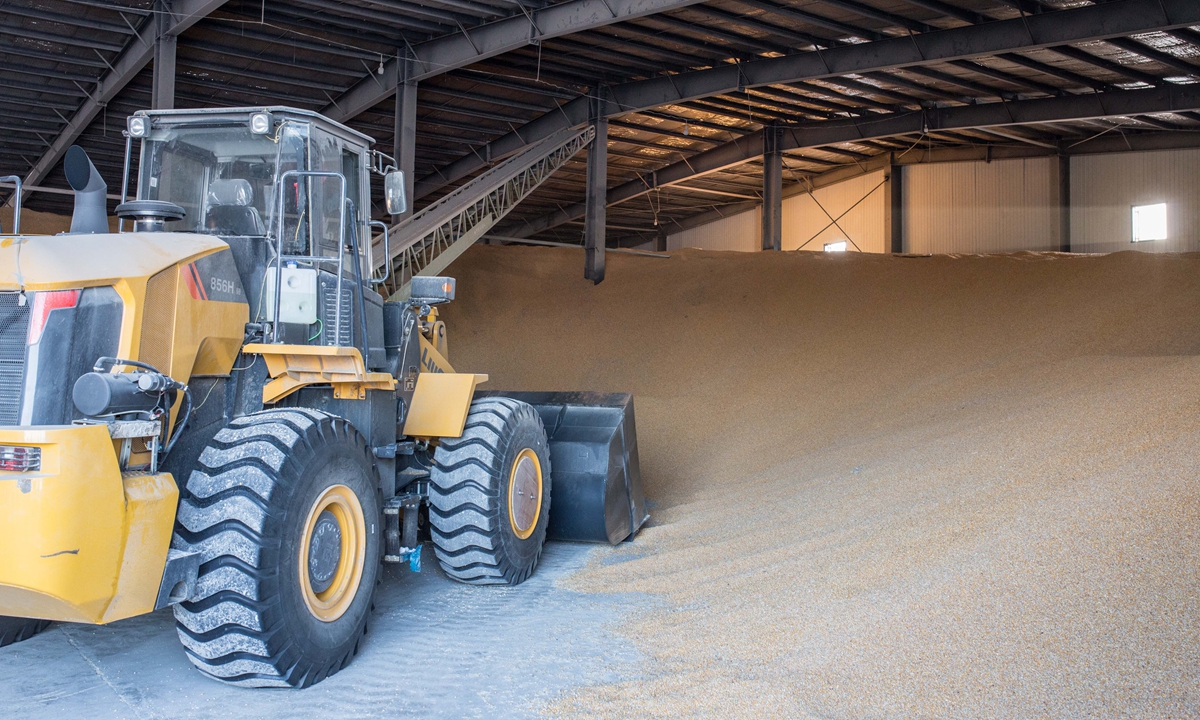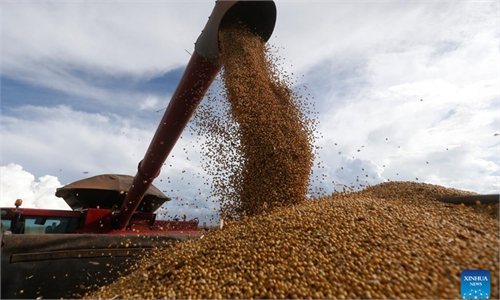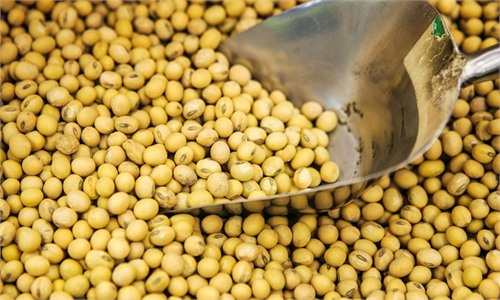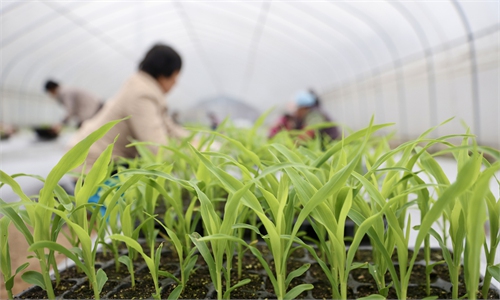China’s market supply of soybeans is stable, as nation continues to diversify import sources

Photo taken on February 11, 2023 shows a soybean storage warehouse in Heihe. Photo: Shan Jie/GT
China's soybean supply remains stable on the market, as domestic output is steadily increasing, coupled with sufficient imports from abroad, Lu Jingbo, deputy head of the National Food and Strategic Reserves Administration, said at a press briefing on Thursday in Beijing.
China will continue to stabilize soybean imports and strengthen international cooperation to ensure domestic market supply, Lu said, noting that the authorities will promote diversification of soybean import by exploring more soybean import sources.
"China's domestically produced soybeans are mainly used for edible use, with annual consumption between 13 million tons and 15 million tons. Imported soybeans are mainly used for oilseed and animal feed," Lu said.
During recent years, China has stepped up efforts to expand the output of soybeans and edible oil crops, simultaneously, to tapping the potential of this important agricultural product. Such efforts have led to accruing output of soybean oil crops.
The output of soybeans in China hit 20.28 million tons in 2022, an increase of 23.7 percent year-on-year, hitting a historic high. "There is a surplus of around 5 million tons after meeting domestic edible use," Lu said, noting that domestic supply is stable.
Last year, the country's imports of soybeans stood at 91.08 million tons, down 5.6 percent year-on-year, official data showed.
In terms of imports, there is sufficient soybean supply globally. It is estimated that the soybean output worldwide is expected to hit a record high in 2023 which is likely to reach 370 million tons, whereas global consumption is expected to rise to 366 million tons. "This means a sound foundation for coordination of domestic and international supply," Lu said.
In order to maintain the stability and resilience of soybean supplies, China has taken a series of measures. The country continues to encourage soybean production expansion with subsidies and other supportive policies, guide large-scale enterprises to develop deep processing of soybeans for optimization of the country's industrial structure, while calling for reasonable consumption of soybeans, according to Lu.



